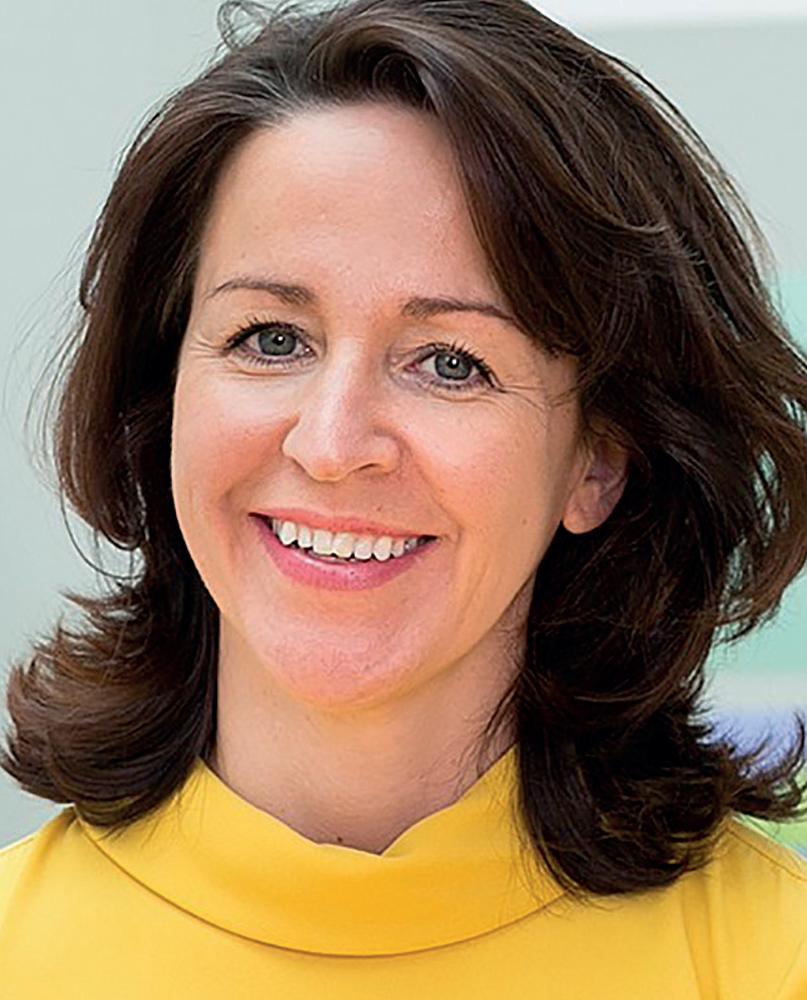Speaker Profile: Gráinne McGuinness 18
DAY 2
Making sure the kids are alright Gráinne McGuinness of Paper Owl Films argues that public broadcasters have a key role – and responsibility – when it comes to tackling mental health issues in kids TV. Karolina Kaminska reports.
B
elfast-based children’s prodco Paper Owl Films’ ethos is to create content “that makes a difference, inspiring audiences to see the world in different ways.” To achieve this, the studio produces programmes touching on various themes and issues, one of which is mental health. One of Paper Owl’s flagship shows is Pablo, an animated series it has produced since 2017. The programme, which airs on the BBC’s preschool channel CBeebies in the UK and on networks in 20 other countries, follows the adventures and challenges of a five-year-old autistic boy. “The most joyous project of our life at Paper Owl has been Pablo,” says creative director Gráinne McGuinness. “What creating Pablo did for us as a team at Paper Owl was give us the mantra of thinking differently and seeing the world in different ways. We worked with a wide spectrum of people – neurotypical and autistic – who all had their own challenges and passions in their lives. In creating that show, it made us all feel very passionately about the fact thatt this is what we want to do in all our shows.” s, Paper Owl last In line with this, mated film Sol, year released animated which focuses on a young boy hrough grief and his journey through ath of his following the death s currently grandma, and is in production on Happy the or CITV Hoglet, a series for gehog about a baby hedgehog ame, who, despite his name, py. is not always happy. The subject of mental ng more and health is featuring more in children’s TV, as awareness around the issue increases. And for McGuinness, it is a vital topic to address when making kids’’ programming. 00% of the future, so “Children are 100% Pablo
nothing could be more important than having nurturing, caring, positive takeaways in our content for that audience. It is the most important audience and the most demanding audience,” she says. “Children will very quickly switch off if they think they’re being preached to, so it’s about getting those messages out in a way that’s done through positive modelling; not by letting kids know that they’re being spoken to but by creating relatable characters and situations that they normally find themselves in and that model healthy behaviours. “Preschoolers and young children are continually engaged in emotional discovery; they feel things so massively, whether it’s the joy of being on a beach or the absolute anguish of not getting what they want. It’s a very natural thing to build in positive emotional discovery in content for them. Not all children have positive modelling of mental health in their homes, so it’s more important than ever we model it in the content we create. “When I was a child, we didn’t have this kind of discussion. We didn didn’tt have th this passion for mental health and establishing es good mental health patt patterns in our yyounger yo unger children and o our younger viewers. I’d say my ow own journey in life would have been be helped an awful lot if I’d had these messages as a child, child because life is fu full of highs and llows. We experie experience all sorts, we e experience grief, we experience expe joy and it’s about navigating it all.” Pubcasters are the most likely to commiss commission kids’ content that covers th themes like mental health, according acco to McGuinness. In fact, sshe doesn’t
“
Child Children are 100% of the future, so nothing could be more important than having nurturing, caring, positive takeaways in our content for that audience. Gráinne McGuinness, Paper Owl Films
”
think Sol – which was commissioned and funded by pubcasters TG4 in Ireland, S4C in Wales and the BBC – would have been made had it not been for those channels, although it was picked up by commercial networks CITV and Channel 5 afterwards. “We wouldn’t have been able to tell that story if it had just been for a commercial broadcaster,” McGuinness says. “It took public service broadcasters to take the risk of addressing a subject like grief for us to be able to make the special. “Public service broadcasters are willing to take a risk. They are willing to reflect minorities and they’re willing to see all children reflected on screen, whereas traditionally commercial broadcasters have had to appeal to more established demographic categories that meet their commercial needs. “I feel very passionately about the fact that we will always need our dedicated public service broadcasters, but there’s absolutely no reason why commercial broadcasters can’t find ways to create meaningful content for children as well. If we are creating content for young children that promotes mental health, we have to do that in a way that attracts the biggest possible audience because we want the biggest possible audience to engage.” Hear more from Gráinne McGuinness on this topic at the Kids Wellbeing Content session today at 9.30am in Hall 3.






